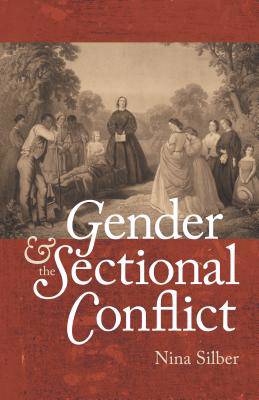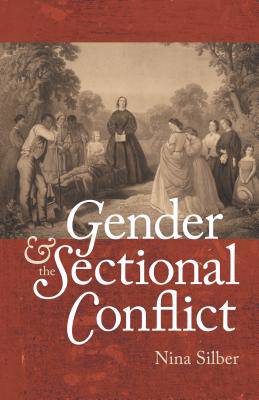
- Afhalen na 1 uur in een winkel met voorraad
- Gratis thuislevering in België vanaf € 30
- Ruim aanbod met 7 miljoen producten
- Afhalen na 1 uur in een winkel met voorraad
- Gratis thuislevering in België vanaf € 30
- Ruim aanbod met 7 miljoen producten
Zoeken
Omschrijving
In an insightful exploration of gender relations during the Civil War, Nina Silber compares broad ideological constructions of masculinity and femininity among Northerners and Southerners. She argues that attitudes about gender shaped the experiences of the Civil War's participants, including how soldiers and their female kin thought about their "causes" and obligations in wartime. Despite important similarities, says Silber, differing gender ideologies shaped the way each side viewed, participated in, and remembered the war.
Silber finds that rhetoric on both sides connected soldiers' reasons for fighting to the women left at home. Consequently, although in different ways, women on both sides took up new roles to advance the wartime agenda. At the same time, both Northern and Southern women were accused of waning patriotism as the war dragged on, but their responses to such charges differed. Finally, noting that our postwar memories are often dominated by images of Southern belles, Silber considers why Northern women, despite their heroic contributions to the Union cause, have faded from Civil War memory.
Silber's investigation offers a new understanding of how Unionists and Confederates perceived their reasons for fighting, of the new attitudes and experiences that women -- black and white -- on both sides took up, and of the very different ways that Northern and Southern women were remembered after the war ended.
Silber finds that rhetoric on both sides connected soldiers' reasons for fighting to the women left at home. Consequently, although in different ways, women on both sides took up new roles to advance the wartime agenda. At the same time, both Northern and Southern women were accused of waning patriotism as the war dragged on, but their responses to such charges differed. Finally, noting that our postwar memories are often dominated by images of Southern belles, Silber considers why Northern women, despite their heroic contributions to the Union cause, have faded from Civil War memory.
Silber's investigation offers a new understanding of how Unionists and Confederates perceived their reasons for fighting, of the new attitudes and experiences that women -- black and white -- on both sides took up, and of the very different ways that Northern and Southern women were remembered after the war ended.
Specificaties
Betrokkenen
- Auteur(s):
- Uitgeverij:
Inhoud
- Aantal bladzijden:
- 144
- Taal:
- Engels
- Reeks:
Eigenschappen
- Productcode (EAN):
- 9781469627076
- Verschijningsdatum:
- 1/06/2015
- Uitvoering:
- Paperback
- Formaat:
- Trade paperback (VS)
- Afmetingen:
- 140 mm x 216 mm
- Gewicht:
- 185 g

Alleen bij Standaard Boekhandel
+ 114 punten op je klantenkaart van Standaard Boekhandel
Beoordelingen
We publiceren alleen reviews die voldoen aan de voorwaarden voor reviews. Bekijk onze voorwaarden voor reviews.











